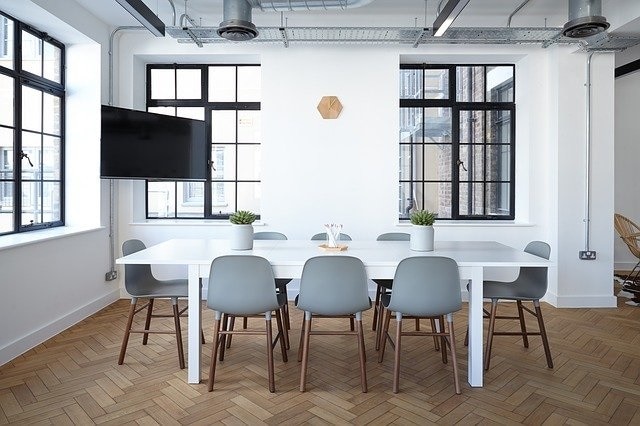Boris Johnson’s announcement that people can begin to return to work may have caused widespread confusion. But it will have resonated with some, according to a poll that revealed half the UK workforce are ready to return to work.
Business groups immediately called for clarity on the Prime Minister’s announcement on what will need to change in the workplace. The British Chambers of Commerce called for answers to “practical questions” in order that they “can plan to restart, rebuild and renew”.
The survey, taken before last night’s address to the nation, involved 2,000 workers. The willingness to return carried the caveat that employers has the right safety process in place.
A further quarter say they “may” be ready to return and only 18 per cent believe it is too soon regardless of additional safety measures, according to the global legal business, DWF.
Younger workers are the most eager to be allowed back to work, with 68 per cent of those aged 18-24 and 58 per cent of 25-34 year-olds ready to return immediately. Just eight per cent of the 18-24 age group believe now is too soon for them to return.
Most of us appear to be willing to accept a wide range of safety measures to enable a return with seven in ten saying they would be happy to wear protective clothing, such as masks and gloves, and even more would be comfortable with their employer conducting regular temperature tests.
The return to work raises clear issues around health and safety and the potential liability of employers
However, the measure attracting the least acceptance was signing up to a central Government contact-tracing app, although even here there was still majority support (62 per cent), with only 16 per cent categorically stating that they are unwilling.
Just four per cent of workers said they would be unwilling to adhere to social distancing at work, with 85 per cent happy for their employer to adopt the measure.
Kirsty Rogers, Employment Partner at DWF, said: “It is evident from the survey that the British workforce is keen to get back to work – but with conditions. They expect their employers to follow the guidance is coming from government, keep them informed and ensure that their workplace is safe to return.
“The challenge for businesses cannot be underestimated. They need to get going again. In many cases it is an existential need, but they must also understand the expectations and responsibilities they have to their employees and customers.
“The return to work raises clear issues around health and safety and the potential liability of employers if employees develop Covid-19 as a result of alleged exposure to the virus at work. Opening too early without the necessary measures in place could be counterproductive resulting in confusion, fear and worst of all more infection.
“The need to support employees in a return to work, engage with them clearly on new ways of working, safety and wellbeing must be at the very top of employers’ agendas.
“It is vital that employers have carefully considered what measures will work for them. This should be supplemented by a clear risk assessment and robust policies and procedures.”
Eye and facial recognition, as used in airports, will provide robust worker recognition and cut the risk of contagion
Jonathan Geldart, director general of the Institute of Directors said it was vital the guidance was clear so that companies could plan how to return safely. And he hinted this is not something that could be done immediately.
“As people with ultimate legal responsibility, directors need to have confidence that it’s safe and that if they act responsibly they won’t be at undue risk,” he said. “Businesses should consult with their people to put in place robust policies, which in many cases might not be an overnight process.”
Brendan Sharkey, head of construction and real estate at MHA MacIntyre Hudson, says we need lateral thinking to make building sites safe.
“The prime minister’s announcement gave the sector a nudge in the direction of resuming normal operations, but lacked clarity. Unlike some sectors, construction will not enjoy a ‘V-shaped’ recovery – contracts will take time to return and there will be a lack of foreign labour to fulfill work.
“To make sites safer one of the government’s priorities should be to facilitate the move to biometrics for staff sign in. Eye and facial recognition, as used in airports, will provide robust worker recognition and cut the risk of contagion. Temperature monitors should be installed on large sites as an early warning system if a worker is unwell.
“Allowing sites to open from 6am to 7pm while light is good, instead of the current 8am to 6pm, would make staggered shifts possible and cut down congestion on public transport. Free parking would also be a huge help.”


